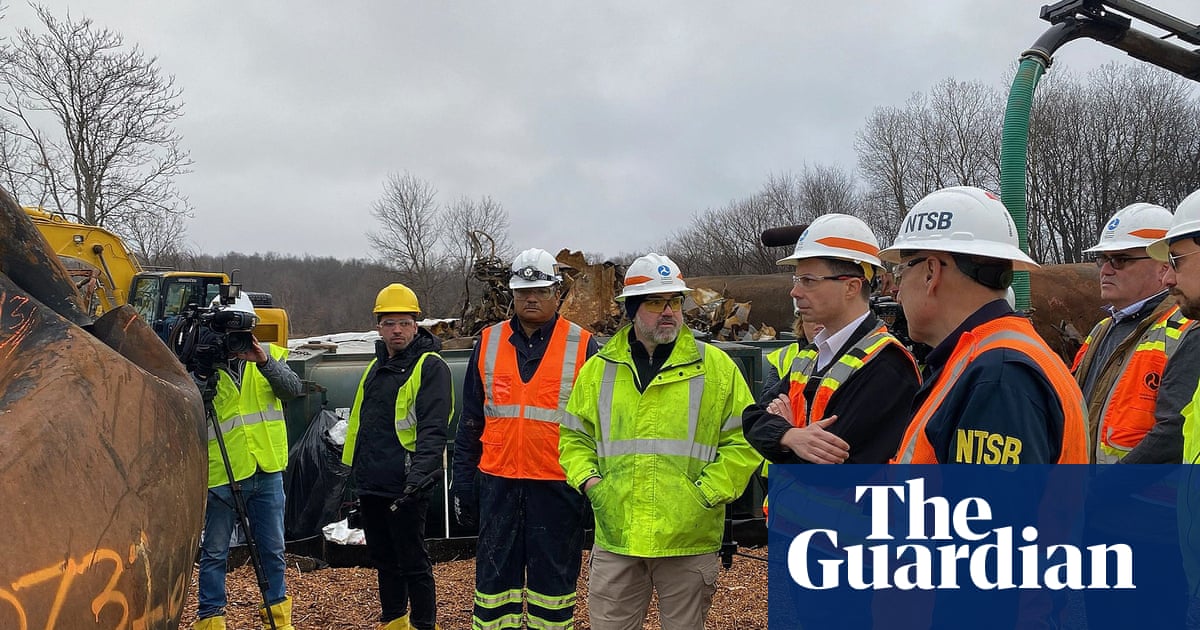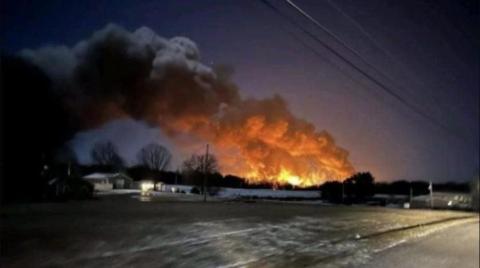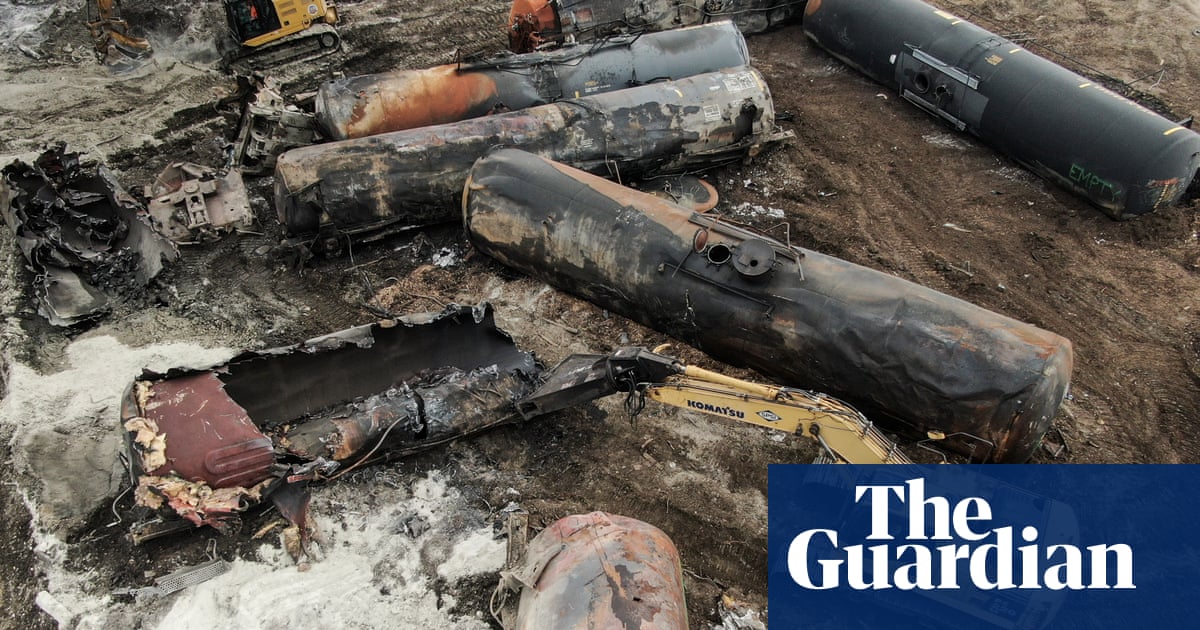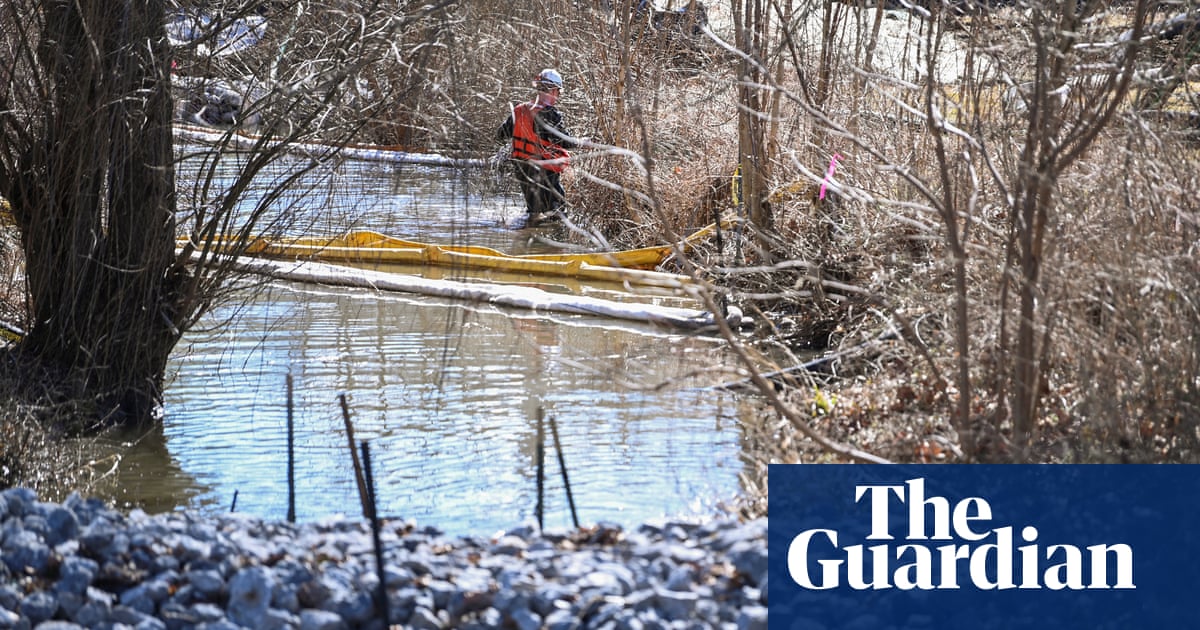
Joe Biden received a briefing on Friday on the multi-agency response to the derailment in Ohio of a freight train carrying toxic chemicals, as his administration came under criticism and safety regulators said the incident had been “100% preventable” – although the train crew were not at fault.
The White House said the US president was being briefed a day after transportation secretary Pete Buttigieg visited East Palestine for the first time since the toxic spill and fire three weeks ago.
The National Transportation Safety Board (NTSB) chair Jennifer Homendy expressed concern about rail safety measures, as the agency released an interim report.
“We know for a fact what caused this derailment,” Homendy said on CNN on Friday morning, indicating that it was the dramatic overheating of a specific wheel bearing, and the fact that sensors on the track did not catch that overheating until it was too late.
“The crew did not do anything wrong,” she said, noting that they had responded correctly to an alarm but the train derailed anyway on 3 February.
“Now it’s looking at how we got there,” Homendy said. “What conditions were present to allow that to happen? And then we’re going to look at what would prevent it from reoccurring in the future.”
The NTSB said 38 cars had derailed and that a fire had damaged 12 more. Of those that derailed, 11 carried hazardous materials.
Asked by CNN if the safety systems were “inadequate”, Homendy noted that they were set by the rail company in question, Norfolk Southern, and not by government. “Those temperature thresholds are not set by regulation. They are not set by guidance. They vary by railroad and it’s their decision,” she said.
The NTSB has “a lot of questions”, Homendy added, “about the [safety] thresholds and why they vary so much between railroads. Why aren’t they more conservative? Should they be lower? All these are questions we are going to ask repeatedly in our investigation.”
Homendy also noted that in 2014 the NTSB recommended more categories of chemicals be covered by regulations on hazardous material.
On Friday, Ohio’s Republican governor, Mike DeWine, announced that contaminated waste from the spill site will be transported to a site near Detroit, Michigan, for disposal while contaminated water would be shipped to a site near Houston, immediately sparking further environmental concerns about transportation and pollution.
Meanwhile high-profile visits by the Environmental Protection Administration (EPA) chief and other state and national leaders have done little to counteract the distrust and anger in East Palestine and the region about the official response.
A police officer based in Darlington Township, just over the state line in Pennsylvania, was at the disaster scene within four hours on Friday 3 February, and then for more than 20 hours over the following few days. He spoke to the Guardian on the condition of anonymity as he was not authorized to discuss the matter.
“We were never given the heads-up about what was on the train, there was a lack of communication, and were never told to put on protective hazmat gear, so I didn’t wear anything. The PPE [personal protective equipment] we have dates back to 2010 anyway, so what good was that,” he said.
He also added: “We’re sending billions to Ukraine, but there’s no money for us.”
People affected by the spill are already noticing ill effects to their health and there are growing concerns about long-term health implications.
“I’ve had a constant headache since 8 February, I hope I don’t end up in a grave quicker because of this. The people don’t trust the EPA because they’re coming around with Norfolk Southern to test air quality, and we know the company is all about the money,” the law enforcement officer added.
The president is coming under fire.
“Biden should have been here from day one,” said Rich Boggs, 70, a supporter of former Republican president and 2024 candidate Donald Trump. Boggs owns a gas station in Darlington, around five miles from the derailment.
Trump won by a large majority in Beaver county, Pennsylvania, and Columbiana county, Ohio, the two areas most affected by the toxic spill.
But even in East Palestine, where the cleanup efforts and resources are focused, residents are struggling to get the help – and answers – they need.
Scott Berresford, 43, lives around 650ft (200m) from the derailment site, which is visible from the yard where he grows tomatoes, peppers, asparagus, garlic, beans and eggplants, and which he now fears is contaminated by the toxic spill. The basement regularly floods, and he is also scared that harmful pollutants in the air and material buried by the rail operator Norfolk Southern will seep into the house.
“All summer and winter I eat off my garden, but they just buried that toxic stuff and now the company nor the EPA will test my soil, that’s what drives me nuts. I paid $400 for an independent test but that’s just for four chemicals … that’s a lot of money for me and everyone in this town,” said Berresford, a construction worker.
Locals get waves of a burning smell every time the wind shifts.
“I smell it in the shower, in my coffee, it gives me a constant headache. My daughter had a panic attack, she thought she was dying,” Berresford said, adding his family was worried they might have to move.












